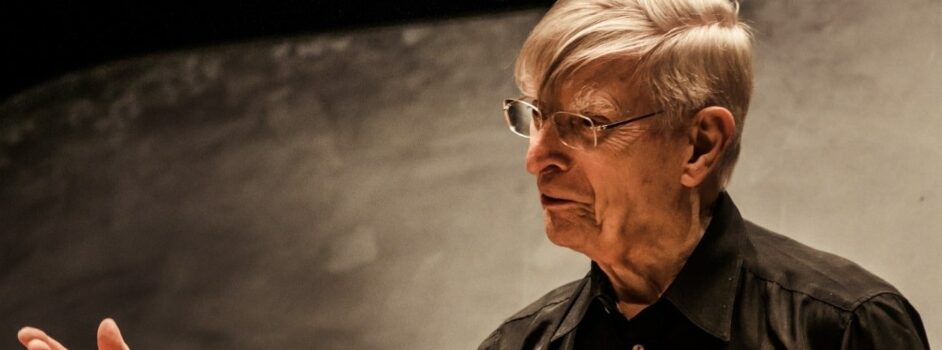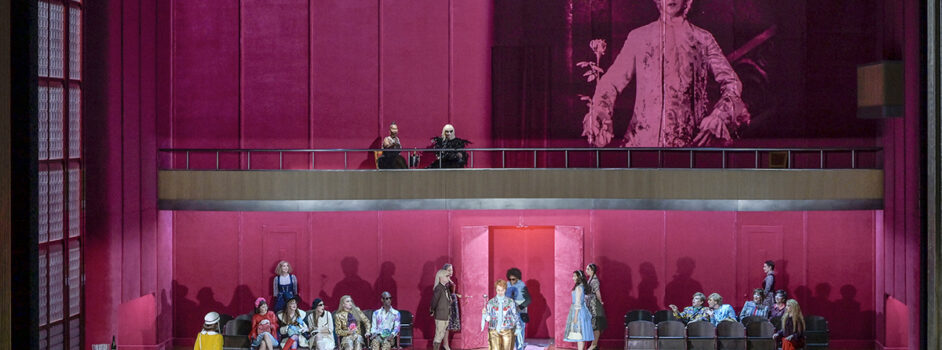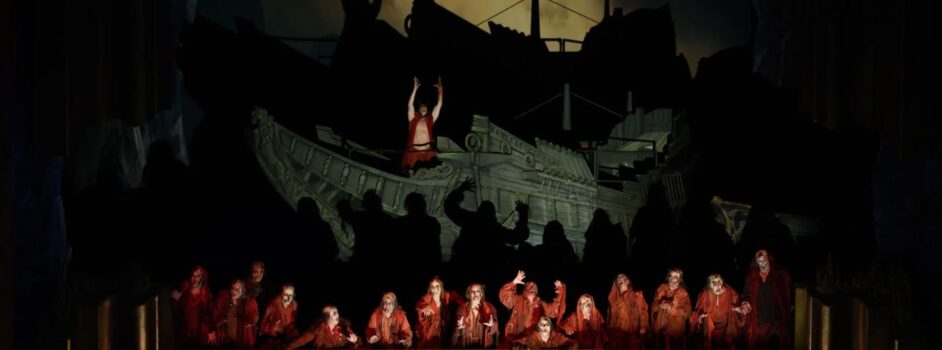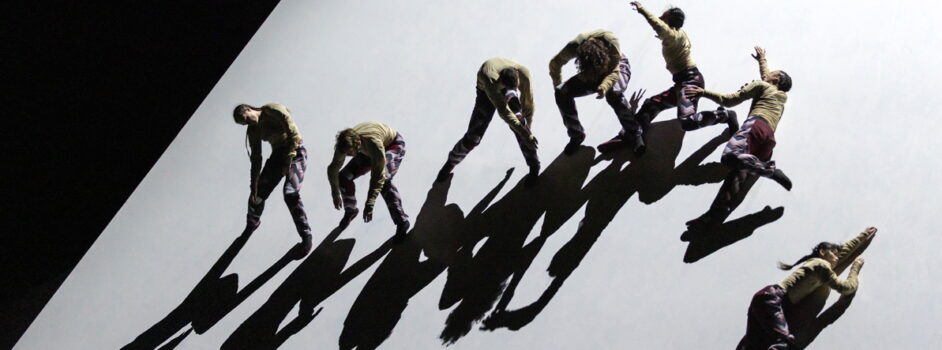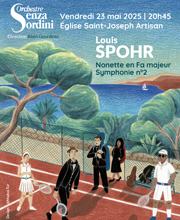Plus de détails
Paris, Théâtre du Châtelet, 16-II-2013.The Peony Pavilion, Chinese opera Kunqu according to the work of Tang Xianzu (1550-1616). Director: Tamasaburo Bando ; Set design: Go Maeda ; Light design:Tomoya Ikeda. With : Tamasaburo Bando (Du Liniang), Yu Jiu Lin (Liu Mengmei), Shen Guo Fang (Blatancy [Flagrance], Du Liniang’s Maid), Tang Rong (Judge Hu), Tao Hong Zhen (Taoist Monk), Zhu Hui Ying (Du Liniang’s Mother), Lü Fu Hai (Dream’s God). Chinese opera Group Kunqu of Suzhou-Jiangsu.
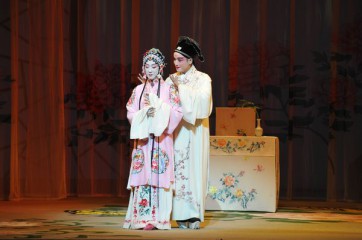 Kunqu is an ancient traditional theater, which does qualify as opera as it includes singing and dancing, along with musical accompaniement. This art was born in the fifteenth century and was included on the Unesco's list of Masterpieces of the Oral and Intangible Heritage of Humanity in 2001. The kabuki master Tamasaburo Bando, who was named a « Living National Treasure »last year in his home country, Japan, created a new version of The Peony Pavilion together with the Kunqu Opera-Theater of Shuzhou-Jiangsu in Southeastern China. This opera is a very popular work in the repertoire, and certainly the most famous in the world.
Kunqu is an ancient traditional theater, which does qualify as opera as it includes singing and dancing, along with musical accompaniement. This art was born in the fifteenth century and was included on the Unesco's list of Masterpieces of the Oral and Intangible Heritage of Humanity in 2001. The kabuki master Tamasaburo Bando, who was named a « Living National Treasure »last year in his home country, Japan, created a new version of The Peony Pavilion together with the Kunqu Opera-Theater of Shuzhou-Jiangsu in Southeastern China. This opera is a very popular work in the repertoire, and certainly the most famous in the world.
Among the characteristics of this art form are a very special kind of declamation, extremely high-pitched voices, music played always in unison, sometimes extravagant costumes, and the rather floor-bound movement.
These peculiarities make the Chinese opera tradition seem almost the exact opposite of opera in the West. But is it really that different? In fact, a lot of parallels can be found between Kunqu and Western baroque opera. Indeed, the high-pitched declamation of young and noble characters – in most cases the story's heroes – is close to the conception of castrato roles ? What's more, the brightly-colored costumes, decorated with a lot of ornaments, and that are often combined with masks (for the gods and spirits) are similar to the ones found in baroque opera. Even though the melodies are always doubled in unison by the strings or the winds, the idea of polyphony, or even of harmony, can still be found in the rhythm and the intensity of sound of the percussion. The dancing in Kunqu is, like the music, quite calm, but it highlights the elegance of the movement and details in the way the characters' eyes and hands move, in the same way that ballet under Louis XIV emphasized elegance of the hand and arm gestures. Likewise, the alternating spoken and sung parts are reminiscent of the light opera, which emerged at that time.
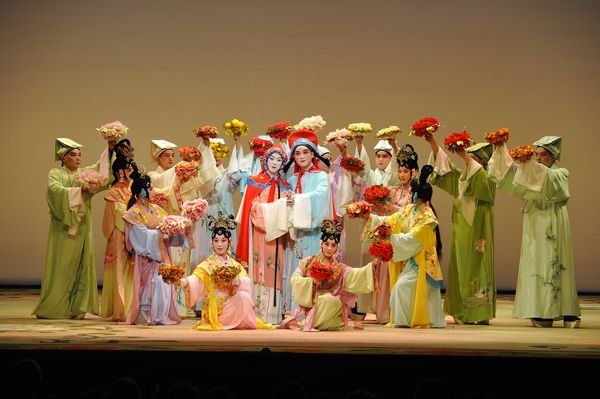 Tamasaburo Bando has researched this six-centuries-old tradition in great depth, reintroducing a female role performed by a man, something that had disappeared at the beginning of the twentieth century. Indeed, he himself sings the part of the heroine, Du Liniang, who is a sixteen-year-old girl madly in love with a young man she saw in a dream, and for whom she will die. Together with the musicians, Bando has also undertaken an important readaptation of the connection between music and theater. In this respect, the master said in an interview : « Kunqu has its own form, a fact of which the members of the company were not really aware, or maybe they had not entirely understood the training process. Thus, we started the work by analyzing all the different forms, one after the other”.
Tamasaburo Bando has researched this six-centuries-old tradition in great depth, reintroducing a female role performed by a man, something that had disappeared at the beginning of the twentieth century. Indeed, he himself sings the part of the heroine, Du Liniang, who is a sixteen-year-old girl madly in love with a young man she saw in a dream, and for whom she will die. Together with the musicians, Bando has also undertaken an important readaptation of the connection between music and theater. In this respect, the master said in an interview : « Kunqu has its own form, a fact of which the members of the company were not really aware, or maybe they had not entirely understood the training process. Thus, we started the work by analyzing all the different forms, one after the other”.
After eight years of development and practical work, this new version of The Peony Pavilion, which includes the nine fundamental scenes instead of the usual fifty-five was finally born and became immediately a big hit in several Chinese cities (such as in Shanghai during the World's Fair) and in Tokyo. The shows in Paris at the Théâtre du Châtelet that took place from February 10 to 16, were the work's European premiere.
Tamasaburo (let's call him by his first name, as the Japanese often do with affection) was born in 1950. He was of an inexpressible elegance as the -year-old Dun Liniang. His movements emanated an ideally feminine grace. His declamation and singing were also perfect: he does not know a word of Chinese, yet he pronounced the text as a Chinese man would, having learnt everything by ear. Yu Jiu Lin's performance as Liu Mengmei (the lover of the pretty Liniang) exhibits all the freshness necessary to the role, and the devotion of Shen Guo Fang (as Liniang's companion) toward her mistress is admirable. The other characters, such as the God of Love, the taoist nun or the judge Hu (who is the guard of the tenth circle of Hell) are very precisely rendered, and this lends great clarity to the whole story.
The company's actors and musicians, together with Tamasaburo Bando, made these shows a key event of Paris's musical season. Their art, of unequaled quality, along with their skill, deserves to be congratulated.
Plus de détails
Paris, Théâtre du Châtelet, 16-II-2013.The Peony Pavilion, Chinese opera Kunqu according to the work of Tang Xianzu (1550-1616). Director: Tamasaburo Bando ; Set design: Go Maeda ; Light design:Tomoya Ikeda. With : Tamasaburo Bando (Du Liniang), Yu Jiu Lin (Liu Mengmei), Shen Guo Fang (Blatancy [Flagrance], Du Liniang’s Maid), Tang Rong (Judge Hu), Tao Hong Zhen (Taoist Monk), Zhu Hui Ying (Du Liniang’s Mother), Lü Fu Hai (Dream’s God). Chinese opera Group Kunqu of Suzhou-Jiangsu.


